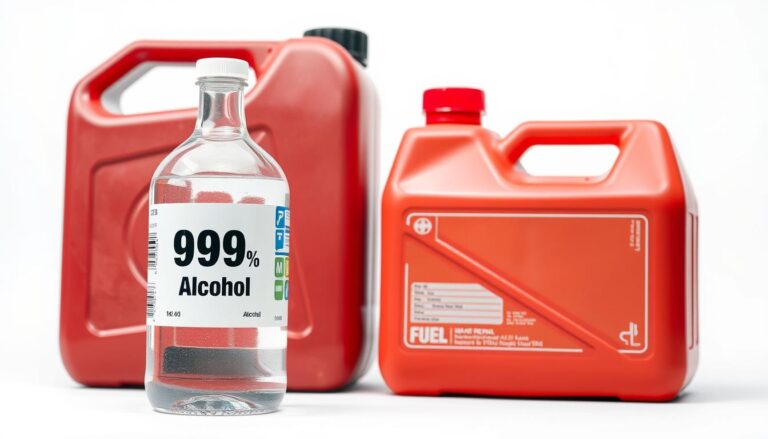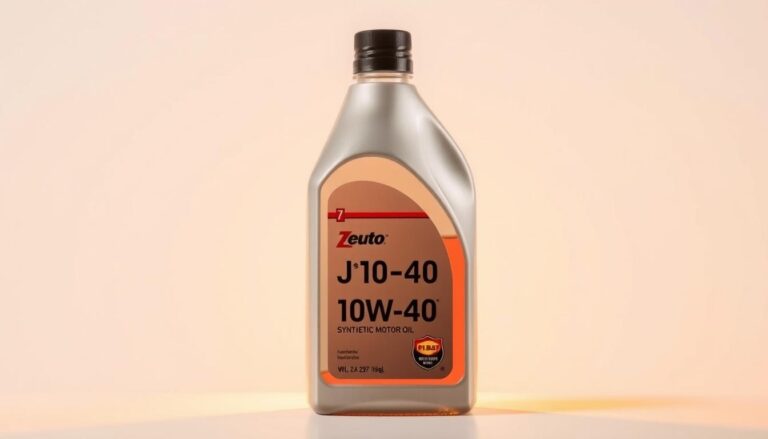No, 5w20 cannot be used instead of 5w30 toyota as it can lead to engine damage. Toyota recommends using the specific oil grade mentioned in the owner’s manual to ensure optimal engine performance and longevity.
Using the right type of oil is crucial to keep your car’s engine healthy and running smoothly. When it comes to choosing the right oil, most car manufacturers provide detailed guidelines in the owner’s manual. Toyota recommends using 5w30 oil in almost all of its vehicle models.
However, some people may wonder if they can substitute it with a different grade of oil such as 5w20. In this article, we will discuss why it’s not recommended to use 5w20 instead of 5w30 toyota and why using the right oil is essential for your car’s engine.
Understanding Engine Oil Grades And Types
Engine oil grades and types are crucial for car owners, particularly when it comes to choosing between 5w20 and 5w30. It’s important to select the appropriate grade for your toyota’s engine to ensure it functions properly. Furthermore, you must also consider the type of oil you’ll be using, including conventional, synthetic, or high mileage motor oil.
Ultimately, your choice should depend on the specific needs of your toyota. Keep in mind that using the wrong type of oil or grade can cause damage to your engine and decrease its overall lifespan. So, make sure you do your research and follow toyota’s recommendations before making a decision.
Can You Use 5W20 Instead Of 5W30 In Your Toyota?
Using the right engine oil in your toyota is essential for optimum performance. While 5w20 and 5w30 may seem similar, they differ in viscosity. 5w30 has a higher viscosity, providing better protection for your engine and helping it last longer.
Using 5w20 instead of 5w30 in a toyota may save a little money but it can cause long term damage to the engine. It can lead to decreased fuel efficiency, increased engine wear, and decreased protection against wear and tear.
Thus, it’s not a recommended choice for toyota owners looking to maintain the health of their vehicle. Always refer to your toyota manual and consult with a professional mechanic before making any oil changes.
Factors To Consider Before Using 5W20 In Your Toyota
Using 5w20 instead of 5w30 in your toyota is a crucial decision. The age and mileage of your vehicle play a significant role in determining which oil is right for you. Environmental factors such as temperature, humidity, and altitude also contribute to your engine’s performance.
When deciding on which oil to use, it is essential to consider the manufacturer’s recommendations. Toyota has an outlined list of optimal oil types for their vehicles. Following these guidelines will help to ensure that your engine runs smoothly and efficiently.
Be mindful and considerate before making the switch to 5w20.
Benefits Of Using The Right Engine Oil
Using the right engine oil can bring numerous advantages to car owners. One of the most significant benefits is improved fuel efficiency. Car owners who use the right engine oil tend to spend less money on gas since it reduces drag and friction in the engine.
Additionally, using the correct engine oil can reduce engine wear and tear, which prolongs engine life. This can be especially beneficial for those who want to keep their cars for a long time. With extended engine life, car owners can enjoy their vehicles without worrying about repairs for years to come.
Therefore, it’s important for toyota car owners to use 5w30 engine oil instead of 5w20 to gain all these benefits in the long run.
How To Change Your Toyota’S Engine Oil
Changing your toyota’s engine oil is a crucial part of vehicle maintenance. Follow these steps to do it properly. First, prepare the necessary tools and materials, including a wrench, oil filter wrench, drain pan, car jack, and jack stands. Next, locate the oil drain plug and filter, then remove the drain plug and allow the old oil to drain into the pan.
Replace the drain plug, remove the old oil filter, and install a new one using the oil filter wrench. Refill the engine with the recommended type and amount of oil, and check the level using the dipstick. Finally, start the engine and check for leaks.
To maintain your toyota’s engine, don’t forget to change the oil regularly, check the oil level and quality, and follow the manufacturer’s recommendations for maintenance intervals.
Frequently Asked Questions For Can I Use 5W20 Instead Of 5W30 Toyota
Is Using 5W20 Instead Of 5W30 Bad For My Toyota Engine?
Using 5w20 instead of 5w30 oil is not recommended by toyota. It can lead to engine damage over time. 5w30 is the recommended viscosity for most toyota vehicles. Stick to what is recommended by the manufacturer to maintain engine health and longevity.
What Is The Difference Between 5W20 And 5W30 Motor Oil?
The main difference between 5w20 and 5w30 oil is their viscosity. 5w20 is thinner and flows more easily, whereas 5w30 is thicker and offers better protection at high temperatures. Always use the oil viscosity recommended by your vehicle’s manufacturer for optimal performance and engine health.
Can Using 5W20 Oil Increase Fuel Efficiency In My Toyota?
Using a lower viscosity oil like 5w20 can slightly increase fuel efficiency in some vehicles, but it’s not a significant difference. However, using oil that is not recommended by toyota can result in engine damage, leading to decreased fuel efficiency and higher repair costs in the long run.
Can I Switch From 5W30 To 5W20 Oil In My Toyota?
While it’s technically possible to switch from 5w30 to 5w20 oil, it’s not recommended by toyota. Stick with the recommended viscosity for your vehicle to ensure optimal engine performance and longevity. Switching to a different viscosity of oil can affect the oil pressure and potentially harm engine components.
What Happens If I Use The Wrong Oil Viscosity In My Toyota Engine?
Using the wrong oil viscosity can result in poor engine performance, decreased fuel efficiency, and even serious engine damage over time. Always consult your vehicle’s owner’s manual or a trusted mechanic for the recommended oil viscosity for your toyota. Stick to the recommended viscosity to keep your engine running smoothly.
Conclusion
After considering all the factors, it is clear that using 5w20 instead of 5w30 toyota may not be the best decision. While it might save you a few dollars in the short term, it can cause significant engine damage in the long run.
The reason behind this is that 5w30 provides better protection in hot temperatures and reduces engine wear and tear. It also ensures that your engine runs smoother and provides better fuel efficiency. If your vehicle manufacturer recommends using 5w30, it is advisable to stick to it as it has been tested and approved based on your car’s specifications.
Even though it might seem like a minor change, it is always better to play it safe and use the appropriate engine oil for your toyota. Make sure you check your vehicle’s manual or consult with a reputable mechanic if you’re unsure.
Remember, prevention is always better than cure!


